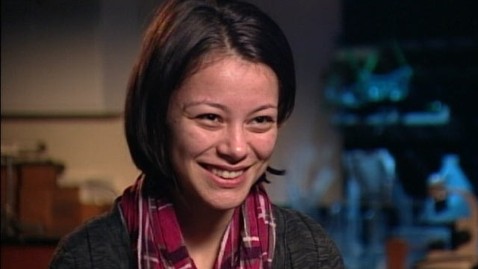Homeless Teen Could Win $100,000 Science Prize and New Future for Family

Samantha Garvey is one teenage girl who would rather read something called The Journal of Shellfish Research than Glamour magazine.
"What I'm doing is the American dream," she says.
The 17-year-old high school senior maintains a 3.9 grade point average at her Brentwood, N.Y., high school, studies Italian and plays the violin. She also has an unusual interest that has recently caught some attention: On Wednesday she was named one of 61 Long Island semifinalists in the national Intel Science Talent Search because of her work studying the effects of predators on ribbed mussels.
"I get so excited to tell people about my mussels and crabs that I become a completely different person," she said.
There's another reason why Garvey and her family are so excited about her nomination. The teen, along with her parents and her 13-year-old siblings, are now living in a homeless shelter. The top prize for the award is a life-changing $100,000.
"It's unbelievable," she told ABC News today. "It might as well be the lottery."
Garvey and her family have lived in shelters and hotels since she was a little girl. Seven years ago, they were able to move into a house, but in February 2010, her parents were involved in a car accident. They were forced to leave.
"It hurts leaving everything behind and just having to be rushed out of your home," she said of the experience.
Even though she doesn't have a place to call her own, or even a desk to do her homework on, the teen has continued to excel at school. Ranking No. 4 in her class, she said she works hard in school for a reason.
"I want to do better for myself," she said. "I want a better life."
In two weeks, she'll find out if she becomes a finalist for the Intel prize, and if she will be given the chance to get her and her family a more permanent place to call home. With so many children across America finding themselves in a similar situation, Garvey has some advice.
"I'm right there with you," she said. "I hope things get better, because they do."
That's just one lesson from a young woman whose future shines bright.